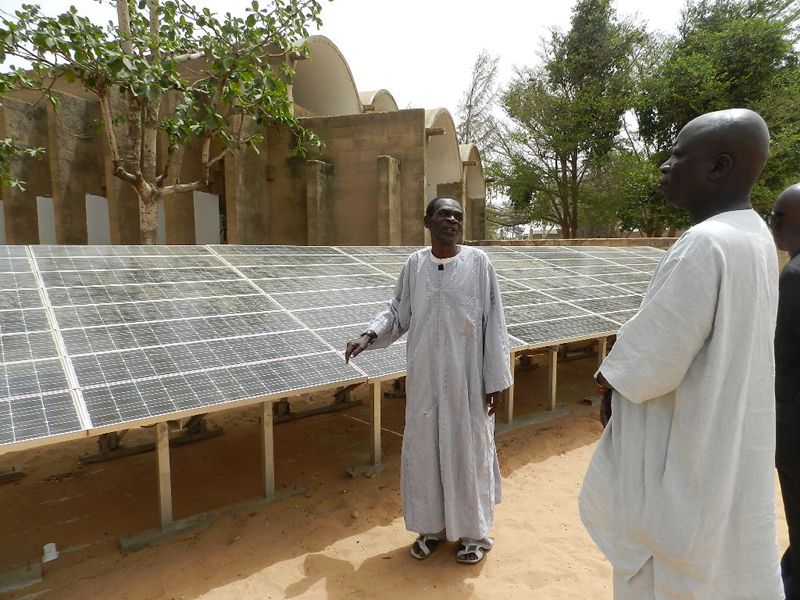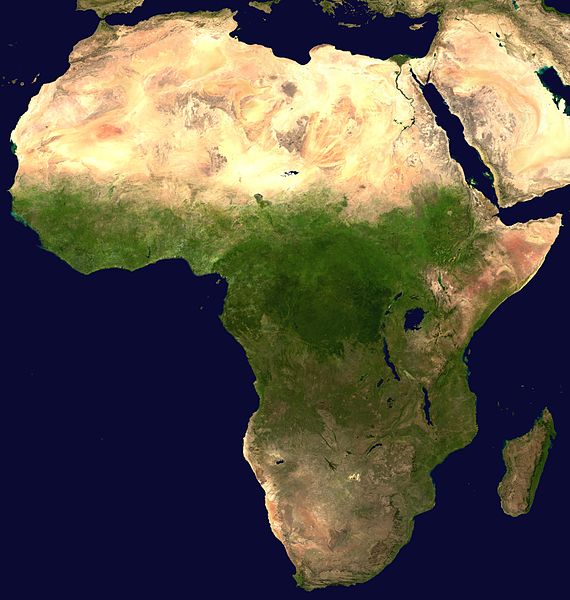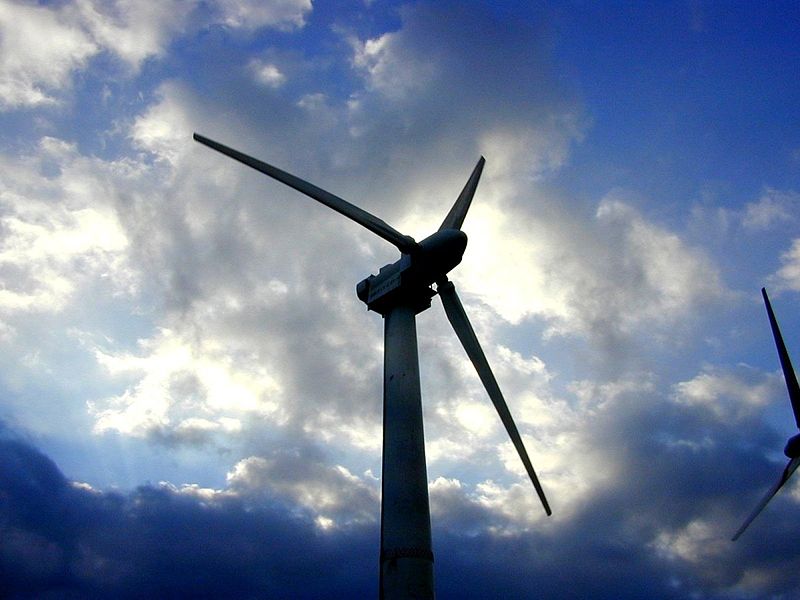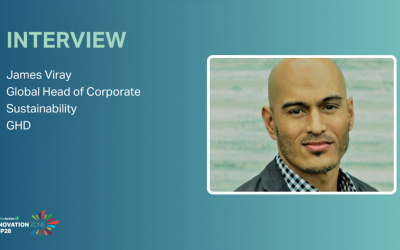Renewable energy, powering our future
Ensuring universal access to affordable, clean and secure energy is a defining issue of our time. Co-operation and relevant information on renewables are vital to ensure sustainable energy development.

The world will be home to 8 billion people by 2030 – 60 per cent of whom will live in cities – demanding higher standards of living and leading more energy-intensive lives.
This leaves us facing some profound choices, with dramatic implications for the future of our planet. On the one hand, there is the potential for another generation to be fuelled by another generation of hydrocarbons, including shale gas and oil. On the other, we see a remarkable coming of age of sustainable renewable energy solutions – wind, solar, hydro, tidal, geothermal, and biomass – driven by improving technologies and declining costs.
These options are not mutually exclusive, but they do represent options, and to make appropriate decisions we must be aware of the entire picture.
For rational decisions to be made, decision-makers must have access to relevant information; outlining the case for renewables with compelling facts and figures, practical examples of success, and suggestions for a path forward. This is why countries came together in 2011 to establish the first intergovernmental organisation in a decade, the International Renewable Energy Agency (IRENA), with the mission to present the case for renewables and assist countries to undertake the transition to a sustainable future.
IRENA in Africa
IRENA’s work on Africa, on island states, on renewable energy costs, on job creation, on the readiness of countries to attract investment, is already building a compelling case that renewable energy is feasible for large parts of the world, while raising awareness of the advantages of renewables as an energy source.
One area of the world that clearly demonstrates both the challenges and opportunities for energy, and which IRENA has been focusing on, is Africa. This vast continent accounts for 15 per cent of the world’s population, but consumes only 5 per cent of the world’s energy. Blackouts, along with reliance on expensive fossil fuels for stop-gap electricity generation, are estimated to cost African economies between 1 per cent and 5 per cent of GDP per year. Yet Africa has an incredible abundance of resources, including renewable energy sources, and is entering a transformation moment in their history – in the last decade six of the world’s ten fastest growing economies were in sub-Saharan Africa. An affordable and reliable source of energy is necessary to power this development and growth.
The global issues of energy access, security and sustainability, are particularly pressing for small island developing states (SIDS). Due to their scale and isolation island energy systems are inherently vulnerable; energy infrastructure costs are higher, and fossil fuel volatility impacts are severe, leaving islanders as reluctant price-takers. For most SIDS, fuel accounts for about 20 per cent of imports, with most spending between 5 per cent and 20 per cent of their GDP on fuel imports. For countries that possess the resources to pursue energy self-sufficiency, this does not make environmental or economic sense.
The Gulf Cooperation Council (GCC) is facing its own set of challenges. The region’s energy demand is growing as a result of high economic and population growth, as well as the harsh climate and the energy-intensive processes involved in cooling, desalination and the hydrocarbon industry. Just to meet this demand the GCC will require 100 MW of additional power generating capacity over the next ten years. This rapid increase in electricity consumption is also having a substantial impact on the region’s oil and gas industries. It is boosting demand for hydrocarbons, which is in turn reducing the volumes exported and the revenues received. Tapping into the GCC’s abundant solar resources could reduce domestic hydrocarbon consumption and emissions, while increasing export revenues.
A new development model
(1).jpg) Viable solutions to the world’s demand for sustainable energy already exist, and are already making a difference. An atoll group in the Pacific called Tokelau was formerly dependent on imported oil, but now has enough solar photovoltaic capacity to meet its own average electricity needs. Across Africa, pioneering business models for supplying off-grid energy, such as pay-as-you-go solar systems, are being developed and eagerly taken up. Growing numbers of countries in the GCC are setting renewable energy targets, investing in projects and supporting innovative initiatives such as the Masdar Institute of Science and Technology (pictured left) in the United Arab Emirates. This is why IRENA is confident in proposing a new paradigm: a more accessible and affordable way for the world to power its social and economic development. The transition to this new paradigm has never been more achievable as renewable energy technologies have been experiencing constant improvements in efficiency and rapidly declining costs. For example, the price of solar photovoltaic panels dropped by nearly 50 per cent in 2011 alone, and electricity generated from wind turbines in the best sites in North America is competitive with, or cheaper than, gas-fired generation even in the so-called ‘golden age of gas’.
Viable solutions to the world’s demand for sustainable energy already exist, and are already making a difference. An atoll group in the Pacific called Tokelau was formerly dependent on imported oil, but now has enough solar photovoltaic capacity to meet its own average electricity needs. Across Africa, pioneering business models for supplying off-grid energy, such as pay-as-you-go solar systems, are being developed and eagerly taken up. Growing numbers of countries in the GCC are setting renewable energy targets, investing in projects and supporting innovative initiatives such as the Masdar Institute of Science and Technology (pictured left) in the United Arab Emirates. This is why IRENA is confident in proposing a new paradigm: a more accessible and affordable way for the world to power its social and economic development. The transition to this new paradigm has never been more achievable as renewable energy technologies have been experiencing constant improvements in efficiency and rapidly declining costs. For example, the price of solar photovoltaic panels dropped by nearly 50 per cent in 2011 alone, and electricity generated from wind turbines in the best sites in North America is competitive with, or cheaper than, gas-fired generation even in the so-called ‘golden age of gas’.
As the case for renewables improves, more countries are implementing policy-assisted markets to hedge against future energy price uncertainties, and enhance their energy security. To date at least 118 countries have some type of national policy target or renewable support policy, an increase of 65 countries since 2005. This global expansion of enabling policies positively affects the geography of the renewable energy market, with markets increasingly emerging in more geographically and economically diverse areas. These emerging markets contributed to the record US$257 billion which was invested globally in 2011. This investment led to a record 83.5 GW of new renewable energy capacity being installed, and to renewables contributing 18 per cent of global electricity supply. With these increasing numbers, renewable energy moves ever further from being a niche, environmentally driven option into an economically viable solution to the growing energy demand of a rapidly growing global population.
So why with this positive and achievable story of a new paradigm are countries still following the unsustainable development model powered by fossil fuels? Part of this reasoncould be because fossil fuels are an entrenched source of power and development. With the challenges and opportunities we face, and the options available to us, that is not a sound basis for deciding a country’s energy future. Ultimately countries around the world need to make critical decisions about their energy future right now. For some this involves expanding their existing infrastructure, whereas for others it involves creating entirely new energy systems. Either way, the decisions that these nations make now will stay with them for decades, and will undoubtedly impact their future economic growth, social development, and environmental sustainability.
Information for policy-making
To ensure that policy decisions are rational, decision-makers must be informed of the true costs and implications of the options for meeting their energy needs. This is where IRENA will play a vital role. IRENA actively engages with policy-makers and stakeholders in over 160 countries across the globe to instigate and accelerate the transition to renewable energy. Renewable energy can only succeed if there is an enabling policy and investment framework, and a compelling business case. To this end, we support countries by ensuring the availability of relevant and up-to-date information and tools, and by pursuing specific areas which are of primary practical interest to them. Vital to our work is our ability to draw on the expertise and experience of our geographical and economically diverse membership. To further strengthen our network, we are establishing partnerships with stakeholders including the private sector, and international organisations.
One partner, the International Energy Agency (IEA), tells us that renewable energy generation will be 40 per cent higher in 2017 than it was in 2011. This outlook relies on continuing supportive policy and market frameworks, as well as renewable technologies becoming competitive in an increasing range of countries and circumstances. To accelerate this momentum of deployment and investment around the world, countries need effective and efficient policies tailored specifically to the market and technologies.
A more secure path to sustainable energy
Every country and continent faces its own combination of barriers to realising the benefits of renewable energy, including unsupportive policy frameworks, inadequate financial mechanisms, and unfavourable business conditions. To overcome these and enable the deployment of renewables requires identifying the particular barriers, and establishing country specific means for overcoming them. IRENA’s Renewables Readiness Assessment is enabling countries to undertake this analysis through a country-led and IRENA-assisted methodology. This methodology is helping countries from Senegal and Mozambique, to Granada and Peru, and Oman to Kiribati, to understand their situation and the action they need to take.
As the uptake of renewables accelerates, so will the number of people employed globally in green jobs. Recent estimates from the Renewable Energy Network for the 21st Century (REN21) indicate that 5 million people worldwide are employed directly or indirectly in the renewable energy industry. In some countries the growth rate of employment is slowing due to financial constraints, policy changes and manufacturing trends. But overall the numbers are growing, and are set to continue growing, especially as we come to understand the potential in the off-grid electricity sector. In particular this sector offers considerable potential for employment along the value chain including in the distribution, installation, operation and service of off-grid systems. In a recent study, IRENA found that reaching the goal of universal access to sustainable energy by 2030 would create up to four million direct jobs in the off-grid electricity sector alone.
Renewable energy’s capacity to supply decentralised energy means it is inherently suited to contribute to achieving the goal of universal access to modern energy services. This forms one of the three complementary and entirely achievable objectives established by the UN Secretary-General’s Sustainable Energy for All (SE4All) initiative. Creating secure access to clean energy through renewable energy will have a positive impact on the socio-economic status and environment of many. A second SE4All objective, doubling the share of renewable energy in the global energy mix by 2030, recognises the impact that renewable energy can have globally. To ensure that we achieve this IRENA has begun developing REMap 2030, a road map for the global community. In this we will identify and lay down viable pathways for renewable energy technologies to achieve this goal, and we will highlight opportunities for international co-operation in renewable energy technology development, deployment, and in end-use sectors.We envisage that this road map will enable countries to plot their paths towards a more secure and sustainable future by up-scaling the contribution of renewable energy.
Globally, we have high expectations of renewable energy to move us onto a more secure, reliable and sustainable energy path. The combined efforts of policy-makers, the courage of investors, and the innovation of scientists, have already acted as positive catalysts to begin this transition. Global growth in renewable energy policy, investment, and capacity figures attest to this. But the realisation of global potential will not be constrained by the availability of energy sources, or by a lack of human ingenuity, but by our ability to co-operate and create practical solutions to our energy challenges. For this we need innovative partnerships, the commitment of governments, and the support and participation of all industry. This is where IRENA will play its role and make its contribution. Decisions concerning our energy future are made for the future of generations to come. This is the time to make those decisions count.







_-_frame_at_0m5s_400_250_80_s_c1.jpg)
